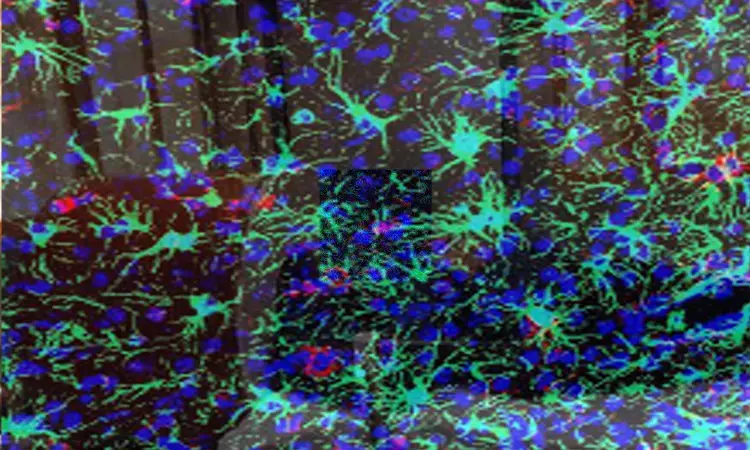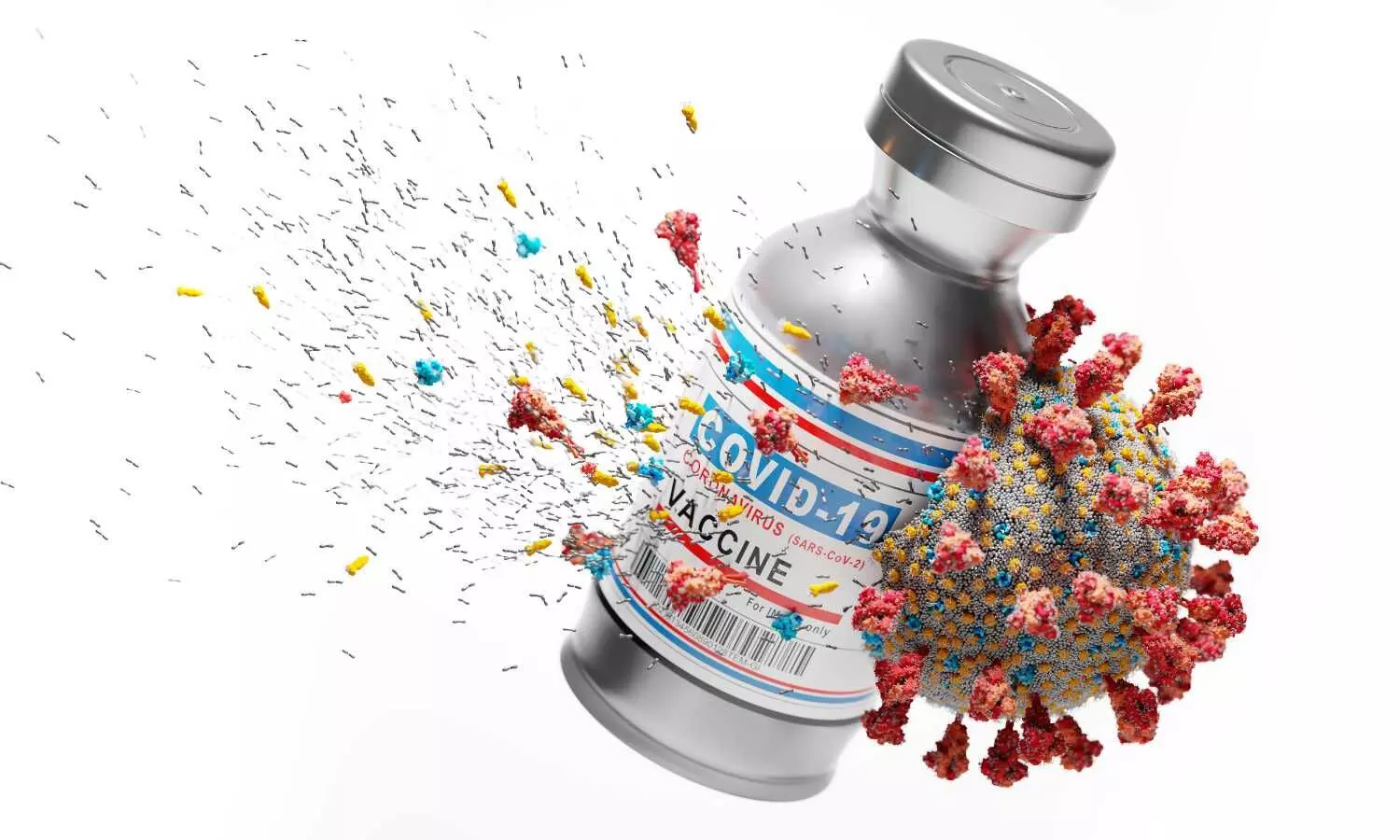- Home
- Medical news & Guidelines
- Anesthesiology
- Cardiology and CTVS
- Critical Care
- Dentistry
- Dermatology
- Diabetes and Endocrinology
- ENT
- Gastroenterology
- Medicine
- Nephrology
- Neurology
- Obstretics-Gynaecology
- Oncology
- Ophthalmology
- Orthopaedics
- Pediatrics-Neonatology
- Psychiatry
- Pulmonology
- Radiology
- Surgery
- Urology
- Laboratory Medicine
- Diet
- Nursing
- Paramedical
- Physiotherapy
- Health news
- Fact Check
- Bone Health Fact Check
- Brain Health Fact Check
- Cancer Related Fact Check
- Child Care Fact Check
- Dental and oral health fact check
- Diabetes and metabolic health fact check
- Diet and Nutrition Fact Check
- Eye and ENT Care Fact Check
- Fitness fact check
- Gut health fact check
- Heart health fact check
- Kidney health fact check
- Medical education fact check
- Men's health fact check
- Respiratory fact check
- Skin and hair care fact check
- Vaccine and Immunization fact check
- Women's health fact check
- AYUSH
- State News
- Andaman and Nicobar Islands
- Andhra Pradesh
- Arunachal Pradesh
- Assam
- Bihar
- Chandigarh
- Chattisgarh
- Dadra and Nagar Haveli
- Daman and Diu
- Delhi
- Goa
- Gujarat
- Haryana
- Himachal Pradesh
- Jammu & Kashmir
- Jharkhand
- Karnataka
- Kerala
- Ladakh
- Lakshadweep
- Madhya Pradesh
- Maharashtra
- Manipur
- Meghalaya
- Mizoram
- Nagaland
- Odisha
- Puducherry
- Punjab
- Rajasthan
- Sikkim
- Tamil Nadu
- Telangana
- Tripura
- Uttar Pradesh
- Uttrakhand
- West Bengal
- Medical Education
- Industry
Toxoplasma gondii infection not linked with aggression among prisoners

A new study revealed that Toxoplasma gondii infections are not associated with violent behaviors of prison inmates. The study results were published in the journal PLOS ONE.
T. gondii is a protozoan parasite causing infections in humans and animals. It resides in latent form in the central nervous system and is associated with the incidence of specific neuropsychiatric conditions in humans like generalized anxiety disorder, mixed anxiety and depressive disorder, bipolar disorder, obsessive-compulsive disorder, schizophrenia, and depression. Literature shows that T.gondii infection may cause nonfatal suicidal self-directed violence, aggression, and impulsivity. As there is uncertainty on the incidence of T. gondii infection and violent behavior, researchers from Mexico conducted a study to evaluate the association between T. gondii seropositivity and violent behavior in a sample of inmates in the northern Mexican city of Durango.
128 convicts (mean age: 35.89 10.51; range: 19-65 years) were evaluated in a cross-sectional research design. Participants' sera were tested for anti-T. gondii IgG antibodies using an enzyme-linked immunosorbent assay. The historical, clinical, and risk management-20 (HCR-20) tool, the kind of offense for which offenders were convicted, and the Buss-Perry Aggression Questionnaire were used to measure violence. (AGQ).
Key findings:
- Of the 128 inmates, 17 (13.3%) had a high risk of violence by the HCR-20 criteria, 72 (56.3%) were considered violent by the type of crime committed, and 59 (46.1%) were considered violent by the AGQ.
- Depending on the violence evaluation method, the seroprevalence of T. gondii infection in violent inmates varied from 0% to 6.9%.
- There was no statistically significant difference in anti-T. gondii IgG seroprevalence between violent and non-violent inmates.
- Mean scores of the AGQ were similar in both the T. gondii seropositive inmates and T. gondii seronegative inmates (P = 0.55).
- Mean scores of anger, psychical aggression, verbal aggression, and hostility in T. gondii seropositive inmates were similar to those found in T. gondii seronegative inmates.
Thus, using three types of evaluations of violence revealed that seropositivity to T. gondii is not associated with violence in inmates in Durango, Mexico.
Further reading: Rocha-Salais A, Muñoz-Larreta FY, García-Pérez SI, et al. Survey on the association between Toxoplasma gondii infection and violent behavior in inmates. PLoS One. 2023;18(4):e0284202. Published 2023 Apr 7. doi: 10.1371/journal.pone.0284202
BDS, MDS
Dr.Niharika Harsha B (BDS,MDS) completed her BDS from Govt Dental College, Hyderabad and MDS from Dr.NTR University of health sciences(Now Kaloji Rao University). She has 4 years of private dental practice and worked for 2 years as Consultant Oral Radiologist at a Dental Imaging Centre in Hyderabad. She worked as Research Assistant and scientific writer in the development of Oral Anti cancer screening device with her seniors. She has a deep intriguing wish in writing highly engaging, captivating and informative medical content for a wider audience. She can be contacted at editorial@medicaldialogues.in.
Dr Kamal Kant Kohli-MBBS, DTCD- a chest specialist with more than 30 years of practice and a flair for writing clinical articles, Dr Kamal Kant Kohli joined Medical Dialogues as a Chief Editor of Medical News. Besides writing articles, as an editor, he proofreads and verifies all the medical content published on Medical Dialogues including those coming from journals, studies,medical conferences,guidelines etc. Email: drkohli@medicaldialogues.in. Contact no. 011-43720751




